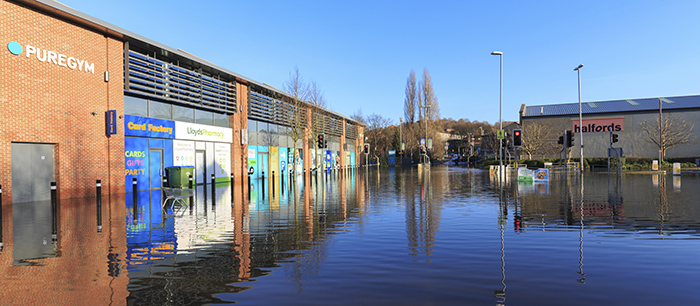Organisational preparedness for the physical risks of climate change in the UK: Headline findings from a UK-wide survey - video

Hosted by the Centre for Climate Change Economics and Policy LSE/University of Leeds and the Grantham Research Institute on Climate Change and the Environment LSE
This event will present headline findings and recommendations from a recent national survey of organisational preparedness for the physical risks of climate change in the UK. A panel discussion will examine the report’s main results and their policy implications.
Presentation of the report:
- Professor Suraje Dessai, Sustainability Research Institute, School of Earth and Environment, University of Leeds and Champion of the Strategic Priorities Fund UK Climate Resilience Programme (report co-author)
Panel discussion:
- Moderator: Declan Conway, Co-Director CCCEP, Grantham Research Institute on Climate Change and the Environment (report co-author)
- Nicola Ranger, CGFI Deputy Director and Head of Climate and Environmental Risk Research, Oxford Sustainable Finance Programme
- Louise Wilson, International Climate Services Team, UK Met Office
- Katie Jenkins, Defra, Senior Policy Advisor, Business & Infrastructure, Climate Adaptation
The report presents the headline findings from a national survey of UK-based organisations’ perceptions about adapting to a changing climate. Called ‘PREPARE-3’, the survey was carried out in 2021. The survey covers awareness among organisations of climate change, its physical risks and how organisations are taking action to prepare for perceived risks. PREPARE-3 follows earlier surveys in 2010 and 2013. The results of the 2021 survey come at a time when adaptation is becoming more salient across society, as extreme weather events raise awareness and cause direct impacts.
The effects of climate change on the UK were ranked fifth out of 11 issues across all UK nations and sectors as a concern faced by organisations (with 58% identifying it as a concern). Overall, compared to earlier PREPARE surveys the levels of concern are broadly similar, except for a marked decline in concern about being prepared in case of extreme weather between 2013 and 2021 which is hard to account for. Fifty-eight per cent of respondents said their organisations had been significantly affected by extreme weather events during the previous three years.
In terms of response, the survey results support a picture of UK organisations that are taking steps to prepare for similar extreme weather events in the future, with the top three actions: capacity training or some form of knowledge transfer, investment in new technologies, and/or making an insurance claim. Action appears to be strongly informed by dealing with the effects of extremes already experienced, with a much lower proportion of organisations taking measures to deal with the physical risks of future climate change. Only roughly one in ten organisations have assessed present and future risks. Perceptions of information availability with respect to adaptation were very positive, although the proportion of positive responses has decreased between 2010 and 2021.
In terms of future action, most respondents felt that the Government should provide more information about the effects of climate change in the UK, additional funding/subsidies/tax breaks, and demonstrate how climate change is relevant to specific kinds of organisations. Organisations perceived a strong role for leadership from government and collective responsibilities for adaptation, signalling a need to recognise this in efforts to promote adaptation.

